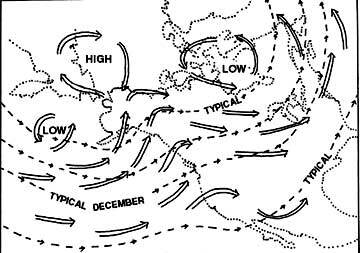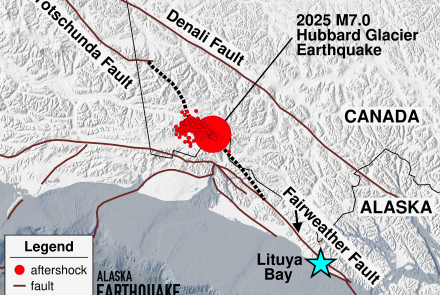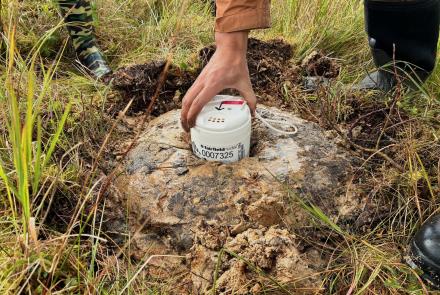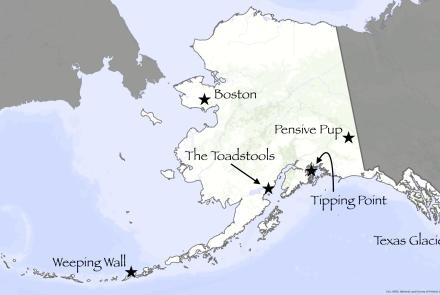
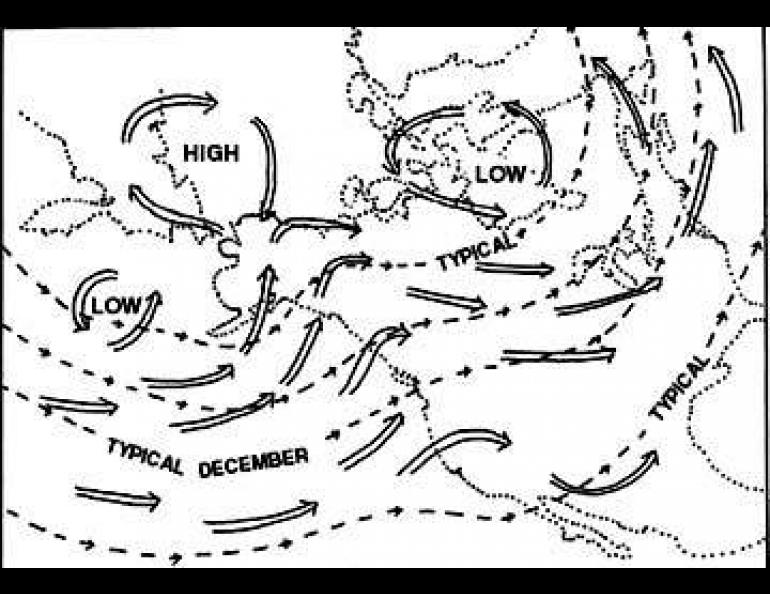
Unusual Weather
Why such a mild early winter in Fairbanks? Why more than 100 inches of rain in Cordova since August? Why the driest fall in 90 years near Seattle? Why unusual cold and storm in the northcentral states?
All these unusual weather patterns are related, and they have a single cause--they are the predictable result of an unusually persistent pattern that has developed these past few months in the air circulation of the Northern Hemisphere.
Normally the upper average jet stream air flow over the Gulf of Alaska is west to east. Having moved across the Pacific Ocean, this air is warm and moist. Its normal flow across the Panhandle and the Pacific Northwest gives the rainfall usually experienced there. Central Alaska in winter normally receives cold air from the north and west, dry air that has swept across Siberia or the ice-covered Arctic Ocean.
The normal west to east flow pattern around the earth at middle latitudes sometimes develops a wavy pattern, as shown in the top of the diagram. Sometimes the wavy structure is influenced and reinforced by the presence of mountain masses. This winter that seems to have happened--a northward undulation of the flow pattern has developed over the mountains of the northwest coast and it has remained fixed there for many weeks.
In consequence, warm, moist air has been forced northward from the Gulf of Alaska. Rising over the Coast Range it has dumped heavy rain on Cordova and nearby areas. Loss of water precipitated on the flanks of the Coast Range and the Alaska Range has actually made the air warmer yet; by the time this air has settled in the Tanana Valley the air is quite warm and dry--hence, our pleasant winter here.
Our gain is to the loss of those living south and east of us. The unusual flow pattern has brought cold arctic air southward down over central Canada and the northern tier of states. Those living in the Pacific Northwest have not received their normal rainfall because the persistent northward air flow in the Gulf of Alaska has diverted the rain-giving moist air northwards and presented it to Cordova and Yakutat. Residents there normally receive enough rainfall to be less than enthused, but they are experiencing warmer than normal temperature.


